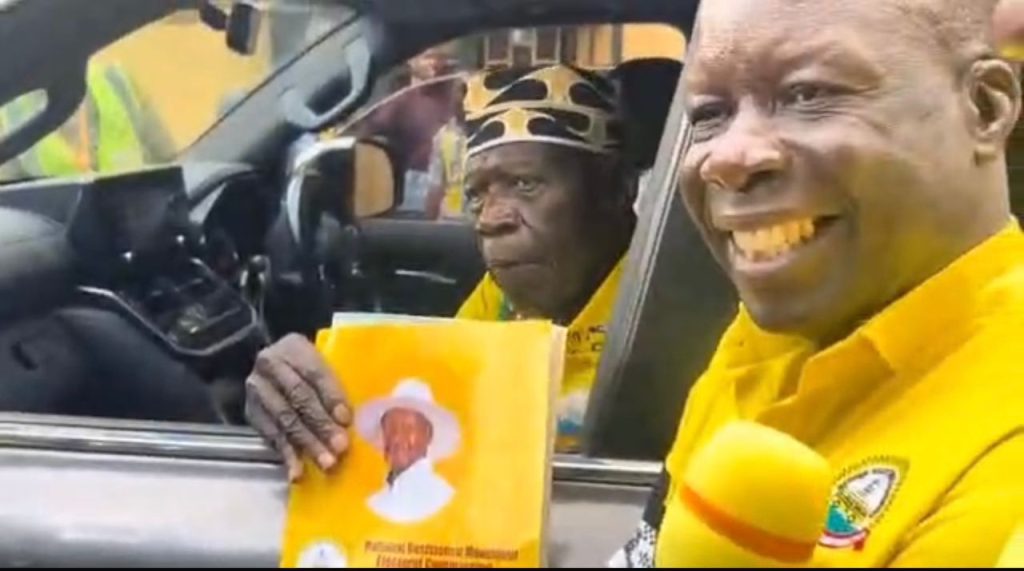General Moses Ali, one of Uganda’s longest-serving politicians and a senior member of the ruling National Resistance Movement (NRM), was Tuesday nominated for the Adjumani West parliamentary seat at the NRM headquarters in Kyadondo, Kampala.
However, the event, which would typically be marked by speeches and celebration, instead sparked widespread public concern after the 86-year-old veteran was nominated while seated in his car, too weak to stand, speak, or walk.
Gen. Ali remained motionless throughout the process, prompting NRM Electoral Commission Chairman Dr. Tanga Odoi to approach the vehicle and conduct the nomination from there.
The general did not address supporters or the media, with aides citing frailty and ongoing health challenges.
The incident has reignited national debate over the state of Uganda’s aging political leadership and raised difficult questions about the motivations behind Gen. Ali’s continued participation in electoral politics. Many Ugandans took to social media to express both sympathy and frustration, wondering why a man in such visibly poor health would be fronted for another five-year term in Parliament.
“This is no longer politics—it’s exploitation,” wrote one X (formerly Twitter) user. “How can a man who can’t speak or walk be nominated to represent thousands of people?”
Gen. Moses Ali has had a distinguished career spanning decades. A former army commander, Deputy Prime Minister, and close ally of President Museveni, he is also the only four-star general from northern Uganda. His military and political credentials are unquestioned. Yet, concerns over his capacity have grown in recent years, with sources close to his team confirming he has been battling age-related health complications and recently suffered a severe health scare involving vomiting in public traffic.
Despite these concerns, Gen. Ali remains a powerful figure in Adjumani, where some locals continue to view him as the direct link to the presidency and national resources. However, many, particularly the youth, have openly called for generational change and fresh leadership.
Critics argue that his frailty not only hampers his ability to serve but also highlights a deeper issue within Ugandan politics—where legacy, loyalty, and symbolism often trump functionality and service delivery.
With the 2026 general elections fast approaching, Gen. Ali’s nomination has become more than a personal matter. It is now a flashpoint in the broader national conversation about leadership renewal, the dignity of aging statesmen, and the future of representation in Uganda.
Whether Gen. Ali will proceed to campaign actively or serve if elected remains uncertain. What is clear, however, is that today’s nomination has stirred more questions than confidence.
